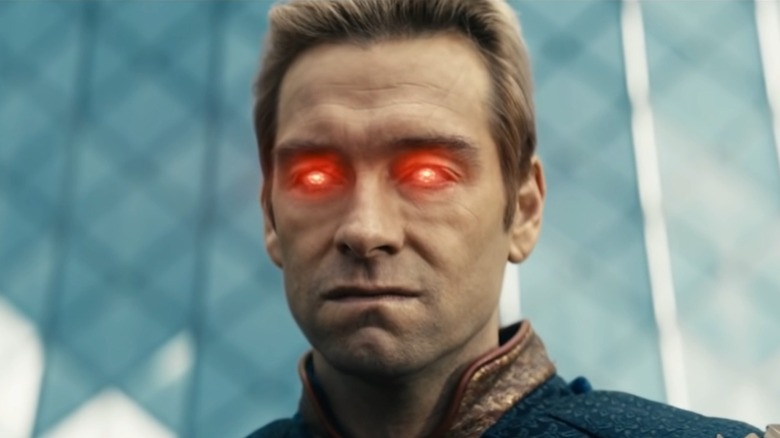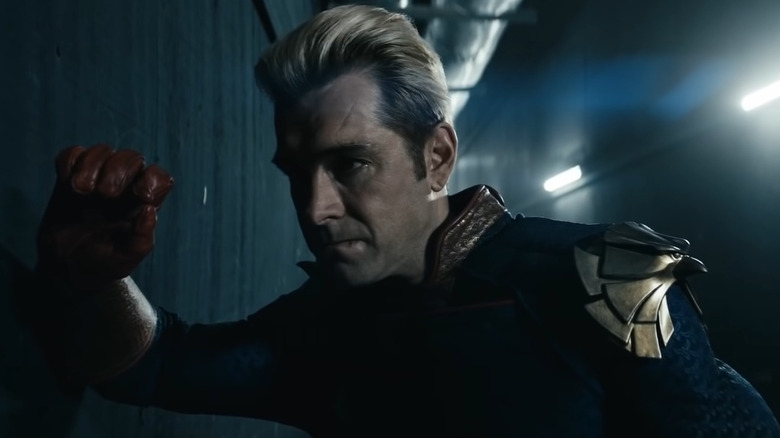Gen V: The Side Effect Of Compound V May Explain Homelander's 'Kryptonite'
Contains spoilers for "Gen V" Season 1, Episode 3 — #ThinkBrink
Compound V might be what gives the Supes on "The Boys" their godlike abilities, but "Gen V" seemingly confirms it could also impart a dangerous Achilles' heel. In Episode 3 of the new spin-off series, Sam Riordan (Asa Germann) reveals in a flashback that taking the blue Supe drug not only granted him immense strength but also left him with what he describes as "a broken brain." With this line of dialogue, "Gen V" hints that Compound V could cause lasting psychological side effects in those who use it — which might explain why Supes appear to disproportionately experience extreme symptoms of psychological disorders and distress compared to non-powered humans.
While we don't yet know the full extent of the symptoms that disturb Sam, several Vought heroes have already exhibited troubling behaviors with as-of-yet undisclosed root causes. Homelander (Antony Starr) experiences vivid hallucinations and regularly dissociates from reality. Similarly, Black Noir (Nathan Mitchell) sees and communicates with animated woodland creatures prior to his death. If all three characters developed these illnesses as a result of being forcibly given Compound V, it would certainly magnify the harm this drug has done. And yet it's arguably more impactful not to dismiss the mental health struggles of the series' characters as pharmaceutical side effects, but to confront the potential environmental and societal factors at play.
Vought's cruel treatment of superheroes could be a factor as well
Though it's certainly possible that a dangerously under-regulated and dubiously legal drug like Compound V could chemically alter the brain, it's equally possible — if not more so — that these mental health conditions are born of the cruelty that many Supes are subjected to from birth. Being forced to live a public life as a horrifying cross between a celebrity and a weapon while simultaneously being shielded from the truth of ordinary life and the consequences of your actions by sociopathic corporate executives (and/or parents) would be enough to shake anyone's perception of reality to its breaking point.
By making these characters' psychological disorders a side effect of Compound V, however, "The Boys" and "Gen V" are missing an invaluable opportunity to explore how systems of power can affect and potentially traumatize those charged with championing them. While this angle might be more challenging, it would offer a depth and nuance that have the potential to resonate with viewers searching for answers on their own mental health journey.

